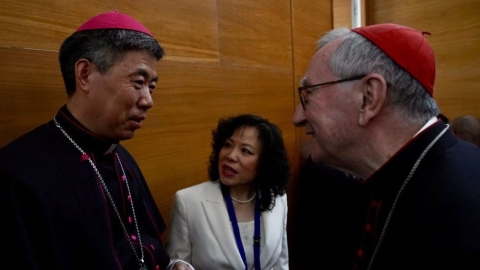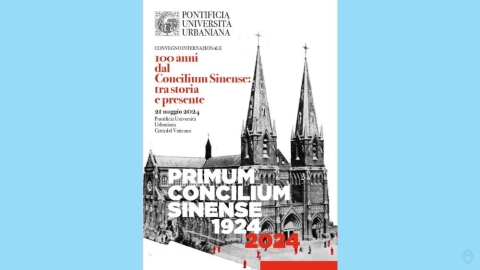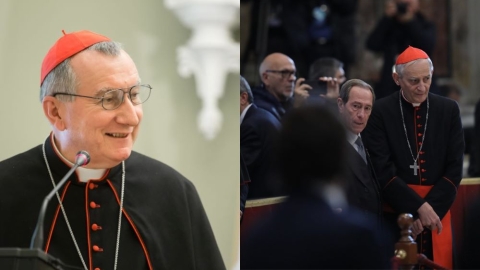Cardinal Zen Questions Synod Procedures

Just before the start of the Synod on Synodality, Cardinal Joseph Zen Ze-kiun wrote a letter to the cardinals and bishops in which he raised serious concerns. The Bishop Emeritus of Hong Kong pleaded for a modification of the internal regulations of the Synod, as well as for courageous debates on the real issues under discussion.
The letter, dated September 21, accuses the Synod organizers of manipulation and of imposing an agenda rather than allowing genuine ecclesial discourse.
Cardinal Zen examined the theological framework of synodality, drawing on the document published by the International Theological Commission in 2018, entitled “Synodality in the Life and Mission of the Church,” which highlights that synodality is fundamentally linked to the community and the participation of all the members of the Church in the mission of evangelization.
The cardinal expressed his concern that the Instrumentum laboris makes little reference to this important document. According to Cardinal Zen, it is nothing less than the function of bishops which is at stake.
“I do not understand, on the one hand, that I am told that synodality is a constitutive element of the Church and, on the other hand, that this is what God expects of us in this century (like something new?).” And he wondered: “How could God forget to allow His Church to live this constitutive element during its 20 centuries of existence?”
Cardinal Zen was “even more perplexed and disturbed” by “the allusion to the fact that the day has finally arrived when the pyramid will be turned upside down, that is, the hierarchy will be overtaken by the laity.” Pope Francis used the image of an “inverted pyramid” in a major speech in 2015 to mark the 50th anniversary of the creation of the Synod of Bishops.
The Holy Father described the role of the Apostle Peter as the “rock” on which the Church was founded and said: “In this Church the highest point is as in an inverted pyramid below the base.” Concerning the decision to give the right to vote to the laity, the cardinal wrote:
“If I were one of the Synod members, I would strongly oppose it, because this decision radically changes the character of the Synod, which Pope Paul VI had envisaged as an instrument of episcopal collegiality, even if, in the spirit of synodality, the laity are admitted as observers – with the possibility of expressing themselves.”
“Giving the right to vote to the laity may seem to respect the sensus fidelium, but are you sure that these lay people you have invited are faithful? In fact, they were not elected as participants,” writes Msgr. Zen. He then tells the bishops that they should at least ask that the bishops’ votes and laity’s votes be counted separately. After all, even the German Synod did that.
Cardinal Zen accused the Holy See of wanting to avoid honest and open debates. He emphasizes that it is only through a solid dialogue that the Holy Spirit can act. “It seems to me that at Vatican II, before reaching an almost unanimous conclusion, a lot of time was devoted to lively discussions. The Holy Spirit was at work there. Those who avoid discussion avoid the truth,” wrote Zen.
And he remembered: “I know that during the Synod on the Family, the Pope rejected the proposals of several cardinals and bishops, precisely with regard to the procedure. However, if you respectfully present a petition supported by many signatories, perhaps it will be accepted. In any case, you will have done your duty. To accept an unreasonable procedure would be to condemn the Synod to failure.”
The 91-year-old cardinal concluded with a new call for prayer to his fellow bishops and cardinals: “This letter is confidential, but it will not be easy to hide it from the media. Despite my age, I have nothing to gain and nothing to lose. I will be happy to have done what I consider to be my duty.”
This letter from the Bishop Emeritus of Hong Kong is strong and courageous. It clearly highlights fundamental questions, on the one hand on the legitimacy of the Synod as it was convened and conceived, and on the other hand on an operation which has nothing to do with any tradition, Latin or Eastern.
(Sources : CNA/InfoCatolica - FSSPX.Actualités)
Banque d’images alamy





